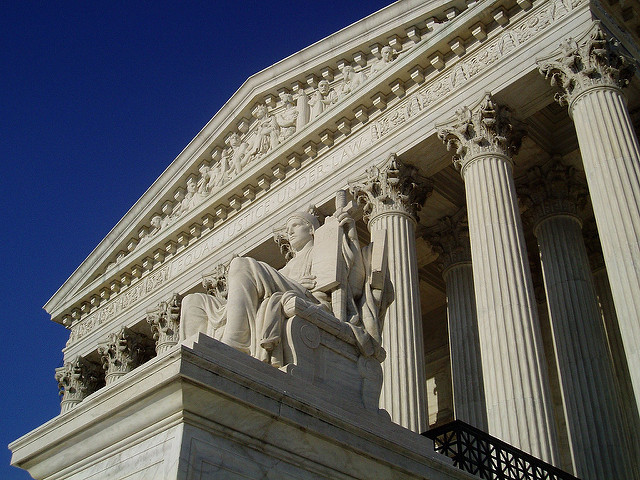Recent Supreme Court Decision to overturn Chevron principles The ruling casts a shadow over decades of progress toward mental health equality in the United States. The ruling limits federal agencies’ ability to interpret vague laws and now Mental Health Parity and Addiction Equality Act (MHPAEA) is vulnerable to challenges in court, which could undo years of hard-won progress.
The first serious attempt to make mental health care equivalent to hospital care came with the Mental Health Parity Act (MHPA) in 1996. This landmark federal law required health insurance plans that had annual or lifetime limits on medical or surgical benefits to apply the same limits to patients receiving mental health treatment.
Unfortunately, the law’s protections were quickly circumvented by insurance companies to include limits on the number of annual visits and caps on psychiatric hospitalizations, making the law largely ineffective at creating equality in mental health care.
The next attempt came in 2008. Like its predecessor, the Mental Health Parity and Addiction Equality Act (MHPAEA) had bipartisan support. Unlike its predecessor, the new bill actually mandated some coverage for mental health care. It also recognized the growing crisis of substance abuse and addiction.
But insurance companies won a clause allowing them to apply for temporary waivers if their costs exceeded a certain threshold. Since then, mental health parity has not been achieved. Cost Issues — or the plan won’t cover it. Subsequent legislation, such as the 2016 Affordable Care Act and CMS extensions, aimed to strengthen mental health parity requirements.
However, in 2019 NPR headlines announce, “Mental health parity” remains an elusive goal for U.S. health coverageThe article points out that “despite two federal laws enacted to equalize mental and physical health insurance coverage, many patients struggle to obtain insurance coverage for their mental health treatment.”
Now that the Supreme Court has overturned the Chevron decision, we face a new threat to progress in mental health equality. Because implementation of MHPAEA rests with Congress, it is vulnerable to challenges in court. Many in the industry expect that insurers will use this opportunity to challenge MHPAEA, potentially undermining their responsibility to provide mental health equality. For example:
- If insurers challenge what constitutes appropriate equivalence without respecting the agency’s guidance, this could lead to a more restrictive interpretation.
- MHPAEA’s compliance demonstration standards are defined primarily through agency regulations and are currently vulnerable to legal challenge.
- The scope of conditions covered under MHPAEA is likely to come under scrutiny. Without regulatory consideration, courts could narrow the definitions of mental illness and substance use disorder to seek parity and exclude certain conditions.
In the end, Chevron’s downfall feels a bit like Lucy pulling the football from Charlie Brown again (interestingly, she First in 1956Every time Congress sits down to the negotiating table to get something done, our health care system, driven by private insurance plans, finds a way to snatch away our goals.
Chevron’s decision gives them a powerful new tool to do so, and it means they must be prepared to aggressively defend against these potential challenges to ensure patients maintain access to vital mental health services.
Expanding Access to Virtual Care
Given these challenges, it is important to explore innovative solutions to maintain and expand access to mental health care. For example, Report A study by the Substance Abuse and Mental Health Services Administration found strong evidence that telehealth is as effective or more effective than in-person treatment for mental health and substance use disorders.
Another study A study on the impact of telehealth on post-pandemic mental health from 2021 found that services are more accessible to patients by avoiding stigma and allowing them to receive treatment from home. Two recent studies: the study Publication year NEJM Catalyst I came to the same conclusion.
Equalize mental health with physical health
It feels like an uphill battle, especially in the current climate, but Equalize mental health with physical health Providing public insurance to those who need it would go a long way toward our goal of making mental health care more accessible and affordable. As long as mental health care remains separate and as difficult to diagnose and treat as physical health, the level of access so desperately needed for Americans of all ages will never be achieved.
Addressing social determinants that impact mental health
Poverty, location (e.g. rural vs urban), and institutional marginalization can have a huge impact on a person’s mental health. We need to start working long before someone shows up to an office or emergency room with a serious mental health problem, focusing on what we can do locally, in our communities and schools, to prevent these serious problems.
The fight toward mental health parity in the United States has been long and difficult. Chevron’s decision adds another hurdle but also highlights the urgent need for action and innovative solutions. Roughly one in five U.S. adults live with mental health issues. experience With 1 in 20 people living with a mental illness experiencing a severe mental illness each year (1 in 20 people experience a severe mental illness), it’s time to ensure all Americans have more consistent access to quality care.
Photo: Flickr user Matt Wade
Dr. Jason Hallock Leading Clinical Innovation Access Telecareintegrating clinical quality and data analytics to deliver superior outcomes for patients and hospital partners. A strategic leader with over 20 years of experience in some of the most highly developed clinically integrated networks in the country, he is skilled at aligning clinical and administrative goals to produce optimal quality, safety, efficiency and revenue outcomes. Dr. Hallock holds a Masters in Healthcare Management (MMM) from the University of Southern California and an MD from the University of Connecticut.
This post MedCity Influencer Program. Anyone can have their perspective on business and innovation in healthcare featured in MedCity News through the MedCity Influencers program. Click here to find out how.

